Migrants crossing the English Channel in unauthorised attempts to reach the United Kingdom © Gov.UK
The arrival of small boats bringing would-be migrants from France to the UK continues to raise eyebrows as well as big political problems for the government and the police – and for the EU.
Mandy Felderhof is credited with writing a short children’s poem about younsters’ first day at school: “Welcome, children, I’m happy you’re here. We’re all going to have a wonderful year.” We hope. It continues in a similarly cheery and encouraging vein: “We’ll read and we’ll write and we’ll sing and we’ll play. We’ll build and we’ll paint and learn new things each day.” Lovely sentiments, of course, although most children normally arrive at their first school with a sense of dread, rather than anticipation of all the fun that lies ahead, not to mention their regret at the loss of the freedom to do more or less whatever they like all day, mothers permitting. And in addition to all those jolly things, the children will fight and hit each other and steal each other’s pencils and paint brushes. At least these days they don’t face getting a stroke of the cane if they’re naughty, as we did in my day (I know: I got some!). One of the welcome quotes I found, and perhaps my favourite, simply goes: “You are always welcome to the places you have never been.” That was written by Marcel Proust. I just wish it was true. It was for me; my job as a journalist has taken me to lots of places where I met new people and encountered new customs and practices, fondly remembered. I believe I’ve been extraordinarily lucky.
The Channel itself, known as La Manche in France, varies in width from 34 to 240 kilometres and extends to some 560 kilometres in length. It has long protected Britain from invasion, although the age of fast vessels and of air travel ended that particular kind of security. It certainly didn’t deter Adolf Hitler’s bombers. It can get quite rough out there if the weather is unfavourable, but that risk has not put off those determined to begin a new life in the UK.
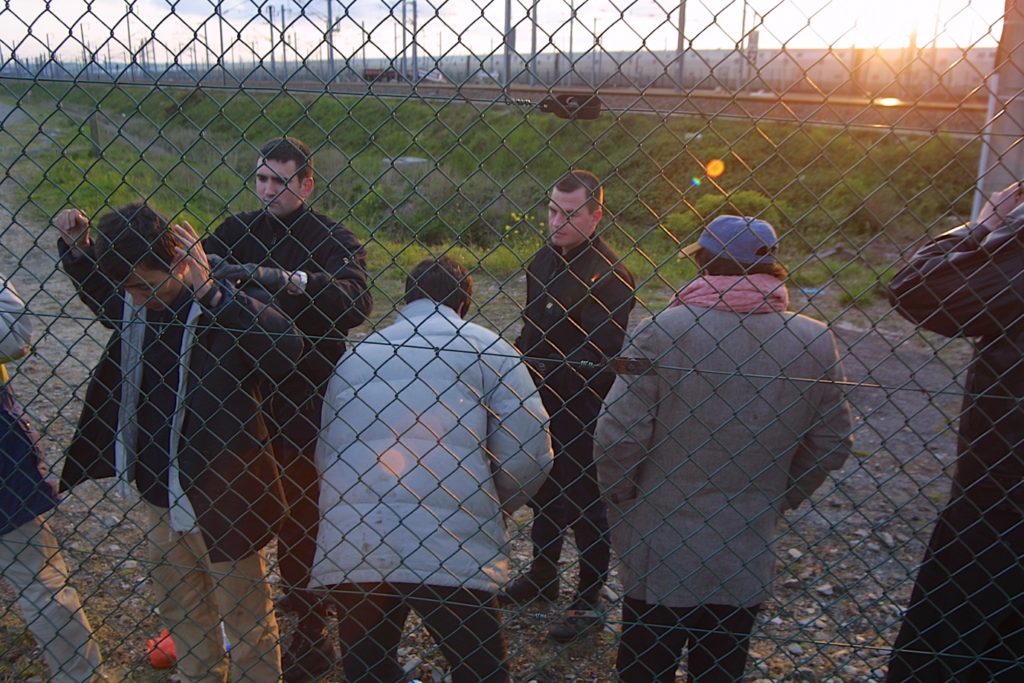
It won’t be easy when they do, because it never is. Asylum seekers are seldom if ever made welcome anywhere. Judging by the animosity shown between groups of people based purely on the place they came from it’s amazing that we ever got beyond the Neanderthals. In Britain recently there have been violent protests outside an Essex hotel thought to be housing asylum seekers which have seen eight police officers injured and to have cost some £100,000 (more than €115,000). Chief Superintendent Simon Anslow of Essex Police said he’s much rather see that money spent on fighting crime. In one protest, locals could be heard chanting “save our kids” since one asylum seeker had been charged with sexually assaulting a 14-year-old girl. The accused man has, of course, denied the charge in court, while a local man also denied violent disorder and causing criminal damage during the demonstration. It’s what guilty people do. There have also been violent clashes between protestors and asylum seekers in a number of locations throughout Britain. The display by anti-asylum protestors of such very English symbols as the Cross of St. George and the Union Jack suggests that the protests are at least as much based on simple racism and nationalism as on racial fear or a wish to close the doors to foreigners. It’s simply not true to say that British people don’t like foreigners living among them. Why else would they buy Indian curries, Italian pasta or American burgers in the quantities they do? But there is undeniable tension, and one migrant hotel in Norfolk has threatened to close its doors if it is forced by the Home Office to house single adult men as protesters gathered outside. Supporters of far-right activist Tommy Robinson have talked quite encouragingly about the clashes. Prime Minister Sir Keir Starmer has been warned that Britain is becoming a ‘powder keg’ that could explode into a repeat of the street violence that was witnessed after murders in Southport a year or so ago, unless Labour can get a firm grip on migrant hotels and their occupants. Some 150 arrests were made outside the Norfolk hotel I mentioned following clashes between pro-migrant and anti-migrant groups, while children were seen marching with banners that read “stop the boats”. Maybe if the migrants arrived carrying banners that read “we want to open restaurants” or “why not try our burgers/pizzas/curries?” there would be less opposition.
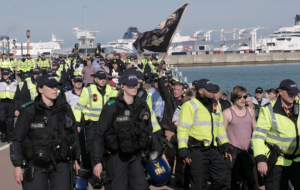
The Prime Minister’s official spokesperson, Angela Rayner warned the government that “17 of the 18 places that saw the worst of the disorder last summer ranked at the top of the most deprived,” which suggests that poverty breeds race hatred, which is understandable if hardly laudable. She added that “while Britain was a successful multi-ethnic, multi-faith country, the Government had to show it had a plan to address people’s concerns (and) provide opportunities for everyone to flourish”. A good idea but how can it be achieved? According to the right-leaning newspaper, the Daily Mail, “The demonstration in Norfolk started with around 60 people shouting ‘we want our country back’. They were met by about 30 counter-protesters from Stand Up To Racism holding signs that read ‘refugees welcome’.” The problem is that in many parts of Britain they’re not, and there are politicians keen to exploit that division, if only to gain votes.
There are, of course, political implications involved here too, and not just for Britain. There are ramifications for the European Union as a whole. It’s a very big issue, and not just for the Tommy Robinsons of this world. It’s also extremely sensitive. The people organizing the smuggling are, of course, criminals. Often, they’re violent and invariably they’re bad and very greedy people trying to make a fast buck. Several of them have now been arrested and had their assets seized. It has become illegal for anyone to engage in any sort of business with them. Among the 25 traffickers and organisations named by the Foreign Office are the well-known gang leader Bledar Lala, an Albanian who leads the Belgian operation of an organised criminal group.
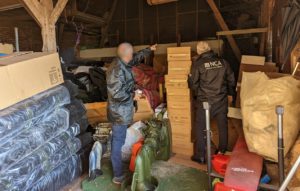
They are making massive profits from moving people across Europe, with no consideration whatsoever for the welfare of the people they have been transporting. It has had repercussions, of course. Prime Minister Keir Starmer and French President Macron have agreed to return illegal migrants to France. The aim is to dismantle the people-smuggling networks and jail the culprits. Keir Starmer told the UK media: “This ground-breaking deal is a crucial further step in turning the tide on illegal small boat crossings and restoring order to our immigration system.” It’s a start, and it looks set to continue, as he said: “For the first time illegal migrants will be sent back to France – targeting the heart of these gangs’ business model and sending a clear message that these life-threatening journeys are pointless.” It’s unlikely to stop the illegal people-smuggling altogether, however. Where there are profits to be made with only other people put at risk the activity will continue. The Home Secretary has hosted her French counterpart, Interior Minister Bruno Retailleau, in Downing Street, where they discussed the work being done both internationally and domestically to prevent illegal migration, including issues like clamping down on illegal working and increasing the removal of those with no right to be in the UK. The trend is spreading; now Greece has closed the door to illegal migrants, having grown tired of being used as a staging post, purely to enrich violent criminals.
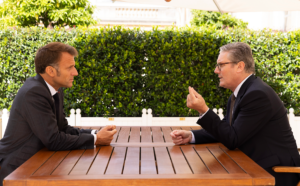
France is also trying to deal with the issue of illegal migration; it’s not only Britain that’s affected. Now France says it plans to set up “hotspots” in Libya to process asylum seekers, in its bid to stem the flow of migrants to Europe. President Emmanuel Macron said the move would stop people who are clearly not eligible for asylum from “taking crazy risks”. He said that up to a million people were currently in camps in Libya hoping to get into Europe, but many of them did not have a right to asylum. He pointed out that migrants were destabilising Libya and Europe by helping to fuel people-smuggling, which in turn has funded terrorism and other forms of crime. It’s a dirty business and it must be brought to an end, although the ever-inventive criminals will doubtless find some other nasty way to make a profit out of people’s misery. The English Channel is, in any case, not the most dangerous route towards a life in Europe. The UN refugee agency says that an increasing number of migrants trying to get from Libya to Italy have been dying on the way, and that the traffickers are becoming ever more ruthless. It wants $420m (€360m) to stop people risking their lives on this deadly Mediterranean route.
President Donald Trump has criticised Europe over its record on illegal immigration, boasting during a visit to Scotland that the United States has successfully “shut it down”, as he put it. He did not appear to mention the problems that make people leave their home countries to seek a better life elsewhere. After all, if everywhere was as friendly and supportive as everywhere else people simply would not take the inevitable risk that migration invariably entails.

They only do it because life in their home country has become unbearable in some way and offers few prospects for children. It has led to great tensions in the countries where the migrants have settled or tried to settle. Looking at Britain’s case (and it’s not alone, of course) between 2020 and the autumn of 2024, some 175,000 illegal migrants had been recorded. There may have been more who evaded detection, of course. And it would seem that Mr. Trump was not being entirely accurate anyway. Since the 1960s, the number of immigrants in the United States has gone up by around 400%, giving a total of around 52-million immigrants who make up around 15% of the population. Most of them appear to have come from Mexico. According to the World Population Review, from which I have drawn other data I’ve used here, the country with the highest number of illegal immigrants is Russia (yes, really) with 12-million, but the United States is close behind with 11.4-million. Next comes India, with 10 million. All of those right-wing protestors in the UK should, perhaps, bear in mind that even within Europe, Britain lags far behind France and Germany in terms of its appeal for would-be migrants. Surprisingly, perhaps, Saudi Arabia attracts more asylum seekers than the United Kingdom. The 14 million immigrants living there account for 39% of the country’s population.
Getting back to the United Kingdom, protests and violence continue in hitherto peaceful suburban areas. Take Epping, for instance, in the county of Essex, which according to some reports has become a focal point for violent disorder arising from protests over housing for asylum seekers.

Local residents have spoken of their fears about the ongoing disorder, with some of them questioning the checks being applied to migrants who arrive in small boats. One resident complained that within just over a week of arriving on Britain’s shores, the migrants are being granted free access to the whole country. Locals are suspicious about the mobs staging protests (both for and against the migrants) describing them as rent-a-mob”, saying that many of them had been bussed in simply to cause trouble. Members of far-right political groups have helped to organise the protests that have been staged outside The Bell hotel. Police officers have been injured in the virtual riots and the protestors have been seen throwing fireworks, bottles and eggs at police vehicles. Local people say they are starting to feel unsafe in the streets of their own town.
Nobody, it seems, has an answer to this conundrum. People always dream of a better life with more opportunities for progress, for themselves and their children. But violent protests are certainly not encouraging. “Our kids go to school here,” one local mother told The i Paper, “and they can’t freely walk around with the worry.” She denied that local opposition to the asylum seekers was a form of racism. She also resented the way in which the incomers were being invited to give their side of the story to the media while local residents stay quiet. The far right have been calling for strong action against the asylum seekers, with the Chief Constable of Essex, Ben-Julian Harrington facing calls from Nigel Farage, the leader of the far-right Reform party, to resign after his officers were accused of escorting counter-protesters to one demonstration in the area.

Mr. Farage has also accused the police of “mishandling” the various protests and counter-protests. Some locals are also growing concerns about the reputation for unrest that could be damaging the county. The Home Secretary, Yvette Cooper, has urged the public to support the police and has had strong words for Mr. Farage and his Reform followers for criticising officers.
Illegal immigration is a widespread issue and different countries have adopted a variety of measures. Australia, for instance, has very strict policies on immigration. Applying what it calls the “Pacific Solution” a lot of effort is applied to apprehending asylum seekers at sea Under this policy those caught trying to get to shore are transferred to offshore processing centres in Nauru and Papua New Guinea, rather than being allowed to reach their true destinations. It’s thought that this technique discourages people from undertaking dangerous journeys by sea to reach countries where they’re not wanted. The EU tries to manage asylum seeking by working together with neighbouring countries to control the immigrants before they can land. It’s a “carrot and stick” appr, offering financial benefit to Istanbul in return for its help in stemming the flow of migrants. And it is a flow, described by those most strongly opposed to it as “an invasion”. Indeed, it may well be unwelcoming but it’s still better than the country (which ever it is) that they’ve left behind. Perhaps that’s why the numbers trying to make it to a new life in a new country are on the rise. In addition, of course, there are networks of smugglers willing (for a price) to provide to the travellers available transportation and short-term accommodation. It’s not just an issue of who any one country lets in. Concern about the issue has led to the growing influence of far-right political parties, happy to use the misery of others to boost their votes.
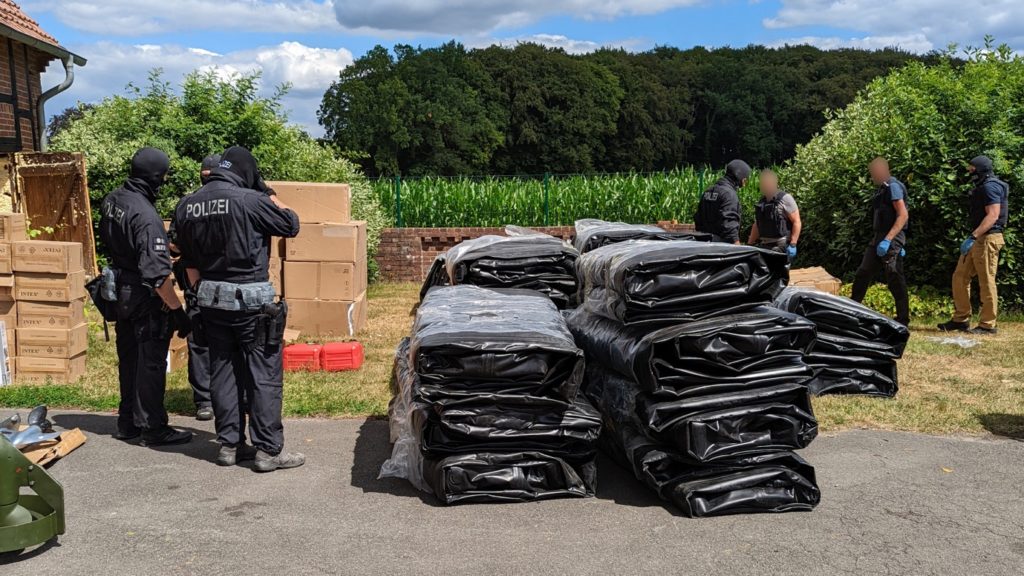
That has been happening in Austria, Denmark, Finland, France, Hungary, Italy and Sweden, as well as in the UK and the United States. It has also boosted their financial benefits, as well as those of the criminal networks happily cashing in on this most unhappy situation.
Is there a solution? If there is then a lot of countries have yet to find it. It’s part of our human nature to seek out the best life we can find for ourselves and our loved ones (especially our children). That’s not going to stop until the world’s wealth is more fairly distributed. Don’t hold your breath; it’s not likely to happen any time soon. Or at all. And there is the fact that some of the destination countries lack the skills that some of the asylum seekers could bring. Some countries are trying to help the travellers fit into their new homes better, including Iceland, Lithuania, Poland and Slovenia. Some of the migrants that have already arrived and settled have gone on to become entrepreneurs, providing jobs not only for those from their own countries but also people already resident in their adoptive home. In 2022, 17% of the self-employed in the twenty-five countries of the Organisation for Economic Co-operation and Development (OECD) were migrants, and immigrants account for founding some of the most successful new companies now adding to the adoptive countries’ wealth. The new companies are often quite small but most of the workers they employ are native-born. Integrating the migrants has proved to be an advantageous strategy from which everyone benefits. I’m not sure that far-right politicians would agree.
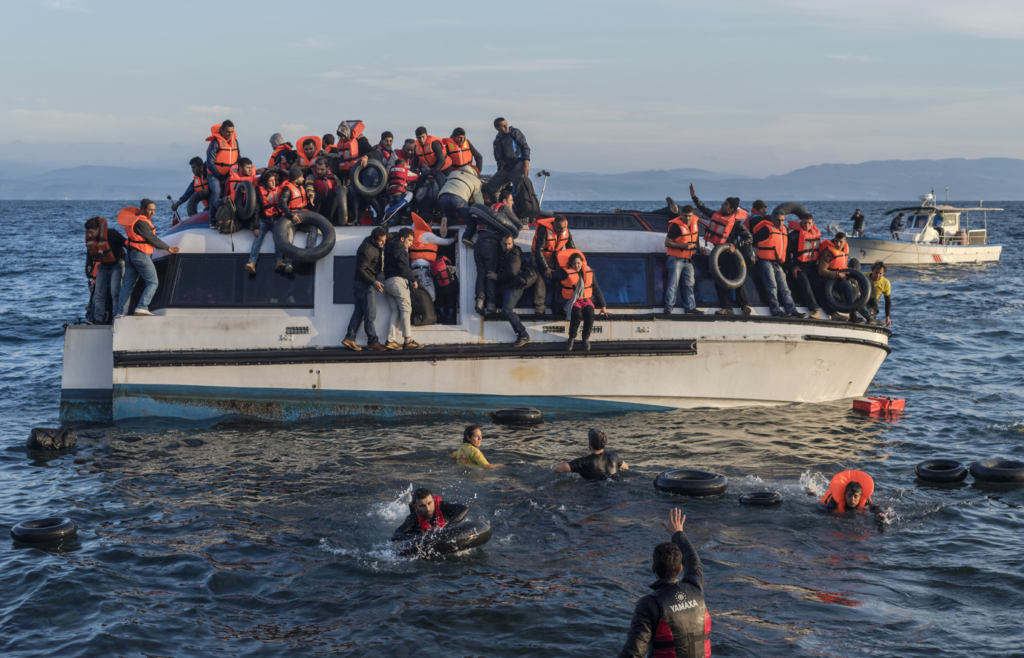
It is true, however, that migrant entrepreneurship added almost four million jobs from 2011 to 2021 and also that migrants have been responsible for founding some of the most successful firms in the OECD.
This is not an issue that’s about to go away. In fact, it probably never will. As I’ve said, people will always strive for a better life, however hard that is, and as long as there are disparities over the wealth of various countries, them immigration, including illegal immigration will thrive. Furthermore, people living in the immigrants’ destination areas will complain and campaign. We have to learn to live with it. Strangely, the Channel between England and France is sometimes referred to as “the Pond”, and sadly some people in Britain dismiss those who cross it (or attempt to) as “pond life,” a derogatory term likening the migrants to those strange whiskery creatures that make their homes amongst the mud and slime that exist down there at the bottom of a pond. It’s a very unfair description and certainly too unpleasant to apply to those who try to cross that little stretch of water in the hopes of setting up home in the UK (it’s not very fair on the whiskery multi-legged little pond creatures, either). People will always be nasty to other people, of course, and insult them if they can, especially if they’re “foreign”.
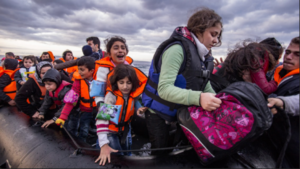
Sea journeys carry a sort of romance, at least in our imaginations, but not for migrants seeking new lands in which to make their homes and perhaps raise their children. Not only do they face rough waves and winds at sea while sailing in fragile, poorly-maintained small boats, but also hostility from the natives wherever they land. Of course, the sea has always represented danger, but humankind has long adjusted to its tides and its moods: torrential rain, hurricane winds, monstrous waves and so on. We have to live with them, as this old sailors’ saying makes clear: “The pessimist complains about the wind; the optimist expects it to change; the realist adjusts the sails.” This quote highlights the importance of adaptability and flexibility in sailing. It reminds us to assess the situation realistically and make necessary adjustments to navigate through storms. And that continues to apply after landing. Newcomers arriving by sea unexpected and uninvited will face hostility at least and in some cases violence. But asylum seekers are not brigands, pirates or Viking warriors. They just want a peaceful life. Surely that’s not too much to ask?

